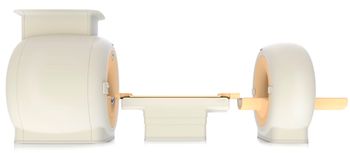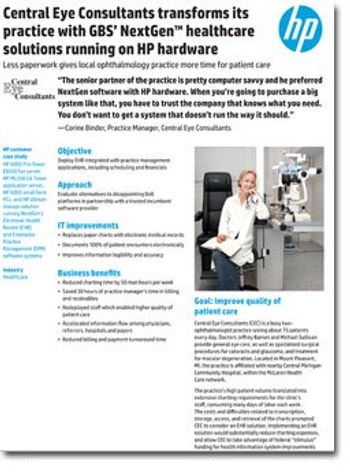
Today's computers, including EHR systems, often can't tell "no" from "not applicable" when selecting data for quality reports. Is this really helpful to physicians?

Today's computers, including EHR systems, often can't tell "no" from "not applicable" when selecting data for quality reports. Is this really helpful to physicians?

When my ideal EHR has finally been developed, I believe that it will be remarkable just how primitive even the best of today's EHRs really are.

You may not be able to intelligibly define EHR interoperability, but you will know it when you have enough of it, and you will also know when you don't.

Although much of what happens in the medical setting is predictable in general terms, the details present almost infinite variety. So some flexibility is needed with EHRs.

Interoperability has been hard to achieve, in part, because the standards that have been agreed upon are simultaneously over specified and underspecified making them difficult, if not impossible, to implement.

Effective technology that can help physicians make decisions and improve the coordination of care without being disruptive would indeed constitute a major advance.

If practices can become more profitable by spending money to assist physicians, just imagine how much more profitable they could be if physicians could actually be productive with EHR.

If EHR was the right thing, adoption would be almost universal by now.

Whatever you choose to do about EHR, please remember that most EHRs are just gadgets, not real longitudinal medical records.

What information is really needed in an EHR for patient care and what really impacts a patient’s subsequent care?

Separating billing-related data from other clinical documentation and transmitting it to a billing system is not difficult …no matter how the charting is done.

When talking about the federal government’s health IT initiatives, what is being said isn’t always correct.

I'd like a resolution that would be of some general use and also help me do a better job making decisions about EHRs.

Sometimes, such as with EHRs, it is not the decision-making process, but those making the decisions that create bad results.

ICD-10 is not something that is appropriate for (or designed for) physicians to be using in a raw form while they are in the process of caring for patients.

I'm curious who really benefits from the upcoming medical coding transition from ICD-9 to ICD-10.

There are not enough medical codes to find one that means exactly what you might want to say about your patient - so you are forced to approximate.

Most institutions … are satisfied to get their medical computer systems from vendors and not dependent on having physicians on the payroll acting as what they consider to be glorified computer technicians.

As attractive as the idea of quality measures in healthcare is, having a computer spit out reports does not create quality.

There are specific reasons for purchasing both cars and EHRs, but this often gets lost in the allure of all the great things that you believe will await you.

In short, certification will set progress in EHR back by however many years it remains in effect.

It is a rare EHR where the core charting functions were engineered, prototyped, and test “flown” before the final product was built.

Your kitchen and your EHR - they have more in common than you think.

The idea of using a distributed network of services to achieve an overall result is familiar to everyone, as long as they are not thinking of EHR.

There are great similarities - and great differences -between EHRs and the auto industry.

This is a “Field of Dreams” problem; no one will come if you don't build it … and economic pressure being what it is, very little development takes place unless there are likely customers.

The author spent 10 years building EHRs the way most developers do it today, but in 1991, had his personal paradigm shift where, "I could never again think about EHR the same way."

Even if physicians are influenced by the incentive or social pressure to make a purchase, the real test will be what, if anything they are doing with their new EHR a couple of years down the road after the initial excitement wears off.

Perhaps it is time to consider that despite the brilliance and hard work of the pioneers, the early decisions, made when their naiveté was unavoidably most pronounced, have had the effect of defining a paradigm for EHR that is not capable of yielding the results that they envisioned.

The history of healthcare computing tells us a great deal about where physicians are today, especially when it comes to EHRs.